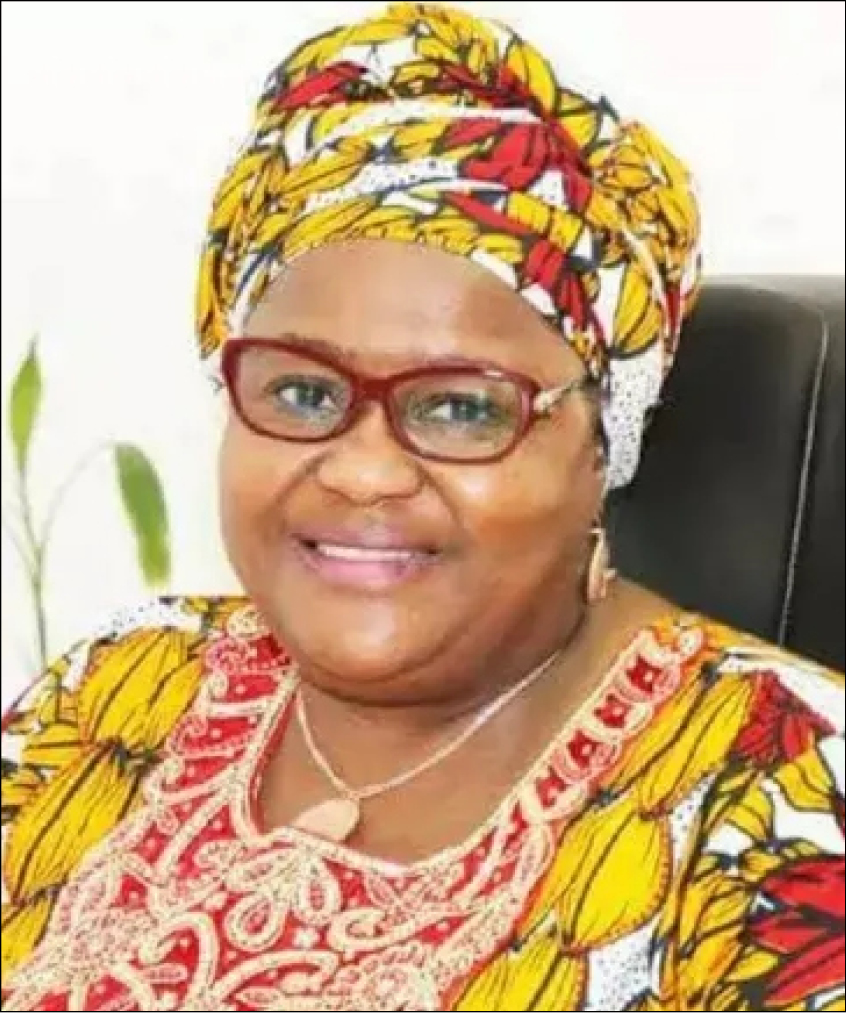Mrs Aisha Dahir-Umar, the director-general of the National Pension Commission (PenCom), in an interview with journalists recently, spoke on issues relating to pension matters in the country.
It has been three years since the PenCom management team was inaugurated. How would you describe your experience, both the highs and the lows?
Reflecting on this period, I can describe the journey as a blend of achievements and challenges. On the positive side, we have made remarkable strides in enhancing the efficiency and transparency of the Contributory Pension Scheme (CPS). Our efforts include the implementation of crucial reforms aimed at optimising procedures and fostering compliance among pension contributors and employers.
The outcomes are impressive: pension assets have surged by N5.94trillion over the last three years, growing from N11.35trillion in August 2020 to N17.29trillion in August 2023. Furthermore, over a million new contributors have keyed into the CPS within this timeframe.
One of our outstanding achievements is the recapitalisation of the shareholders’ fund of Pension Fund Administrators (PFAs) from N1billion to N5 billion. The significant increase in the number of registered contributors and pension assets under the management of PFAs had necessitated increased capital injection in order to meet minimum service standards and address various operational needs in the pension industry. Following the successful conclusion of the recapitalisation exercise, PFAs have become financially stronger and better equipped to offer quality service to Retirement Savings Account (RSA) holders.
PenCom had, as part of efforts to clean the database of contributors under the CPS and pave way for RSA holders to initiate transfers from one PFA to another, deployed the Enhanced Contributor Registration System (ECRS) in June 2019. The ECRS replaced the Contributor Registration System (CRS), which had become obsolete. Accordingly, PenCom directed all PFAs to commence the Data Recapture of RSA holders registered on the legacy CRS. The exercise, which involves the recapturing of contributors’ biodata and biometrics, applies to all RSA holders who registered with PFAs before 1 July 2019.
Over 1,103,237 RSA holders have, from the inception of the exercise in August 2019 to September 31, 2023, been recaptured on the ECRS.
The deployment of the ECRS has also enabled the commission to launch the Retirement Savings Account (RSA) Transfer Window on November 16, 2020. The RSA Transfer Window provides the platform for RSA holders to seamlessly transfer their RSAs, with the associated balances from one PFA to another once every year.
In 2022, PenCom issued the Guidelines on Accessing Retirement Savings Account (RSA) balance towards Payment of equity contribution for residential mortgage by RSA holders.
The guidelines gave effect to the provisions of section 89 (2) of the Pension Reform Act (PRA) 2014, which provides that “a pension fund administrator may, subject to guidelines issued by PenCom, apply a percentage of the pension assets in the Retirement Savings Account towards payment of equity contribution for payment of residential mortgage by a holder of Retirement Savings Account.”
This landmark achievement by PenCom seeks to ensure that employees become homeowners while still in service. PenCom has, from the commencement of the implementation of the guidelines to August 31, 2023, approved 339 applications for payment of residential mortgage equity contributions amounting to over N4billion.
One persistent issue is the complaint of low pensions by some of those enrolled under the CPS. You have often suggested ways of supplementing the benefits. Why are we finding it hard to address this issue once and for all?
The challenge of insufficient pension benefits is a multifaceted problem that extends beyond the purview of PenCom. It is imperative to note that several factors are responsible for insufficient pension benefits, but the main one is the issue of low salaries, especially in the public sector.
It is worthy of note that the PRA 2014 has sufficient provisions to address the issue of low benefits. For instance, section 4(4)(a) of the Act provides that an employer may, notwithstanding the pension contributions made by the employer and employee into the employee’s RSA, agree on the payment of additional benefits to the employee upon retirement. Employers, especially those in the public sector, can take advantage of this provision to enhance their employees’ retirement benefits.
Furthermore, employers can consider an upward review of the rate of pension contributions in respect of their employees. Section 4(1) of the PRA 2014 stipulates a minimum pension contribution of 10 per cent by the employer and 8 per cent by the employee. However, the pension contribution rate can be enhanced through a collective agreement between the employer and the employee as provided under section 4(2) of the PRA 2014. An employer may also elect to bear the full responsibility for the pension contribution of his employees.
Achieving a comprehensive solution to the challenge of low pensions requires collaboration between employers and employees. PenCom, however, remains resolute in finding a lasting resolution to the challenge.
PenCom introduced the Non-Interest Fund to cater for the choices of contributors. How well has it been received?
The Non-Interest Fund (Fund VI) is one of the fund types under the Multi-Fund Investment Structure introduced by PenCom. The key objective of the Multi Fund Structure is to empower pension contributors and retirees to achieve optimum returns by aligning their pension savings with their individual risk/returns objectives. In addition, the structure is meant to provide investment portfolio choices to contributors.
The Non-Interest Fund complies with Sharia principles. It has provided an inclusive option for contributors to save for their retirement while respecting their ethical preferences. The reception for the Non-Interest Fund has been positive and PenCom is continually working to expand awareness and access to this option. As at August 31, 2023, the value of the Active Non-Interest Fund and Retiree Non-Interest Fund stood at N42.43bn and N5.24bn respectively.
Nigeria’s pension assets are now over N17trillion. What does this mean in a layperson’s language?
The Nigerian Pension Industry has witnessed a significant growth in assets under management, which, as at August 31, 2023, stood at N17.29trn. This pool of funds has significantly enhanced savings mobilisation, capital market development and economic growth. Specifically, Pension Funds have been deployed for investment in infrastructure, targeted at financing waste management, independent electricity generation and road construction (Sukuk). Furthermore, pension funds have increased the availability of long-term funds for investment in the real sector of the Nigerian economy.
Some examples of infrastructure projects financed with pension funds include roads built across the six geopolitical zones under the Sukuk programme, Akute power plant, Island power plant, Pipp Genco, Gasco Marine Limited and the construction of 1,200 hostel rooms at the University of Calabar, Cross Rivers State.
In the final analysis, an improved economy and financial system directly benefit individual pension contributors through improved returns on pension savings and enhanced payouts at retirement.
The impression outside is that PenCom is awash with money like the Nigerian National Petroleum Company (NNPC) Limited, Federal Inland Revenue Service (FIRS) and similar institutions. How much of the pension assets are with PenCom?
The roles and responsibilities of all players in the pension industry are well defined by the PRA 2014. PenCom was established by law to regulate, supervise and ensure the effective administration of pension matters in Nigeria. Accordingly, the functions of PenCom include the regulation and supervision of the CPS, issuance of guidelines for the investment of pension funds; and approving, licensing, regulating and supervising pension fund administrators, custodians and other institutions relating to pension matters as the commission may from time to time determine.
On the other hand, pension fund administrators are companies licensed by PenCom to manage and invest the pension funds in the employee’s RSA, while pension fund custodians (PFCs) are responsible for holding pension assets in safe custody on trust for pension contributors. Pension fund custodians receive contributions and settle transactions relating to the administration of pension fund investments on behalf of PFAs.
Based on this explanation, I believe it is clear that PenCom does not have custody of pension assets, neither can it access the funds which are held in custody by PFCs.
You introduced the Micro Pension Plan for individuals and small businesses. It would appear that adoption has been very low. Why is this so?
The Micro Pension Plan (MPP) was introduced to broaden pension coverage, particularly for individuals and small businesses in the informal sector. From its inception to September 2023, about 105,455 contributors have been enrolled in the MPP. However, registration numbers have fallen short of initial projections due to several factors.
First, there are notable challenges within the informal sector, which are related to accessing financial services, building trust and understanding the pension system. Secondly, the current unavailability of appealing incentives associated with the product has made it less attractive to our target clientele. PenCom is actively exploring the introduction of incentives, such as health insurance coverage for MPP participants in order to address this challenge.
Finally, the economic situation in the country, characterised by high unemployment, inflation and rising poverty levels, has slowed down the uptake of the MPP. The MPP remains a vital initiative and PenCom is committed to making it more accessible and appealing to a broader spectrum of individuals and small businesses in the informal sector.
The introduction of the RSA Transfer System is one of the major highlights of your tenure so far. What changes has the industry witnessed as a result?
The RSA Transfer System (RTS), which enables RSA holders to seamlessly transfer their RSAs from one PFA to another, was introduced in November 2020. The RTS has been a significant milestone in the Nigerian pension industry and has facilitated the transfer of RSAs without losing pension benefits. It is noteworthy that the RTS has improved competition among PFAs, driving them to offer better services and competitive investment returns. The ultimate beneficiaries are RSA holders because the RTS has enhanced the pension industry’s overall efficiency and competitiveness.
Many government agencies and senior officials are still trying to exit the CPS. How much danger does this pose to the pension industry as a whole?
The CPS was meticulously designed to ensure the sustainability of pension benefits for all participants. You may wish to note that the reasons that informed the decision of the federal government and that of the 6th and 8th National Assembly to decline the request to exempt some personnel from the application of the CPS are still valid. Indeed, the arguments against the exemption of these personnel are compelling and reinforced by economic, fiscal, social and public policy reasons.
Exemption of government agencies and personnel from the CPS would imply an additional financial burden on the federal government. It is trite that the federal government is already overburdened with the payment of pensions under the Defined Benefits Scheme as illustrated by the 2023 Appropriation Act, which made a provision under the Service Wide Vote for the sum of N854.8bn as total allocation for pension and gratuities. This amount includes allocations to military pension (N244.6bn), National Intelligence Agency (N10.4 bn) and the Department of State Security (N18.5bn), representing 29 per cent,1.2 per cent and 2.2 per cent respectively.
Another immediate negative impact of exemptions from the CPS is that it would unsettle the federal government’s fiscal policy and financial system stability. It is imperative to note that as at August 31, 2023, about 66.31 per cent of the N17.2trn pension assets are invested in federal government’s securities. Exemptions from the CPS would lead to material divestment from federal government’s securities before maturity, which would have ripple adverse effects on government’s finances and the entire financial system.
It is also important to note that the exemption of any agency from the CPS would erode the pool of long-term investible funds accumulated under the scheme. This would undermine the process of funding the huge infrastructure gap in the country. Indeed, it is noteworthy that the pension industry has significantly contributed to the provision of finance for infrastructure development in Nigeria through investments in infrastructure bonds (including sukuk).
In your book, Fighting for the Future: Nigeria’s Pension Reform Journey, you wrote about an “industrial complex” built on blackmailing government officials. You narrated several occasions in which the media was used to intimidate you. Is there a solution to this?
The issue of undue influence and intimidation by some media outlets, particularly online media establishments, is a challenge that needs to be addressed as part of a reform process. Transparency, accountability and a robust regulatory framework are vital to combating such practices.
PenCom has made significant strides in improving transparency in the pension industry and strengthening regulatory oversight. The commission is, in order to preserve Nigeria’s pension system, committed to upholding the highest ethical standards and working with relevant authorities to address any undue influence or intimidation attempts.
President Bola Tinubu has promised economic reforms. Is there any reform the pension industry needs now that you would want him to address?
President Tinubu’s commitment to economic reforms is commendable. Regarding the pension industry, the commission would welcome the federal government’s continued support and collaboration in order to address the challenges of funding accrued to pension rights, pension increases and other outstanding pension obligations. There is also a need for a definitive policy pronouncement to stop further exit from the CPS.

 Join Daily Trust WhatsApp Community For Quick Access To News and Happenings Around You.
Join Daily Trust WhatsApp Community For Quick Access To News and Happenings Around You.


